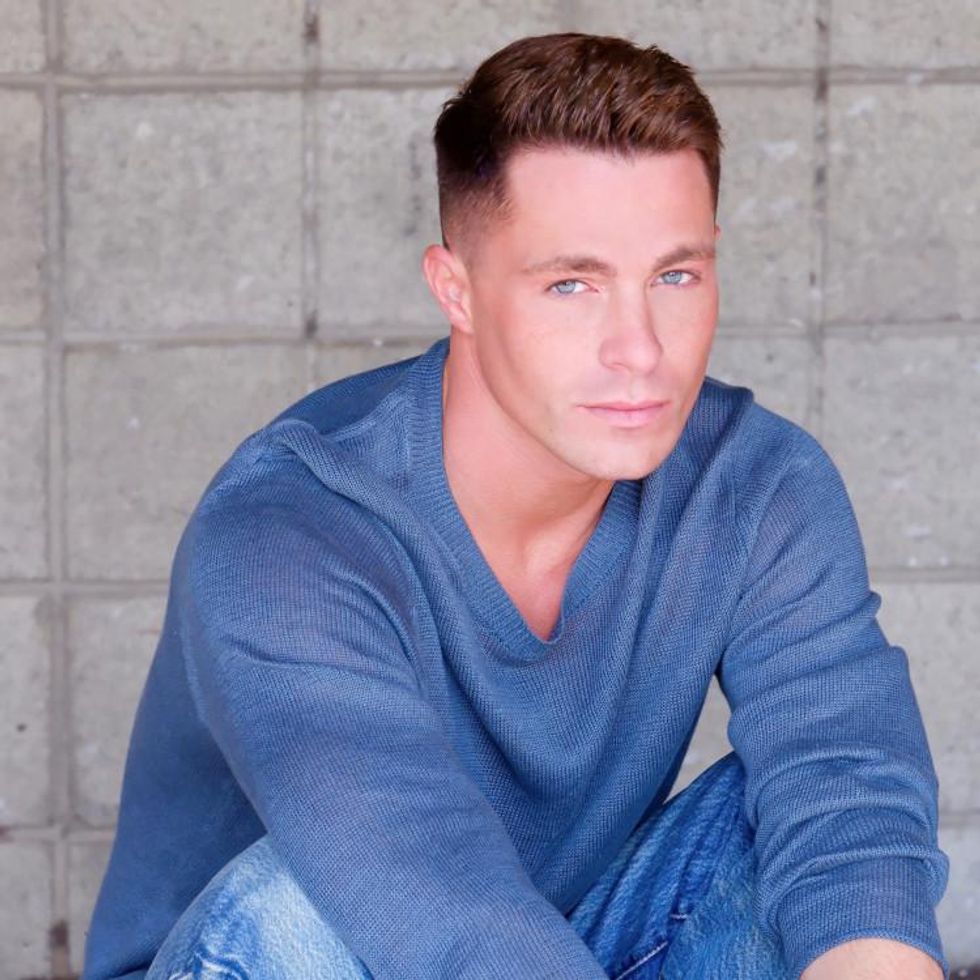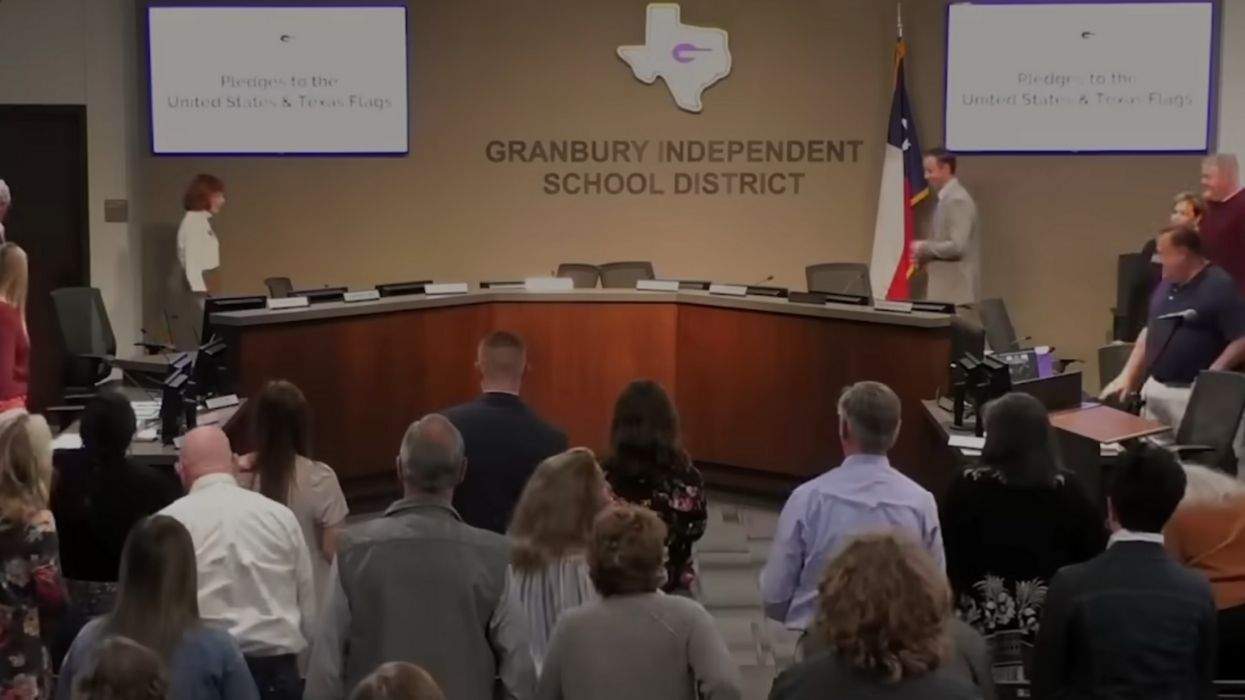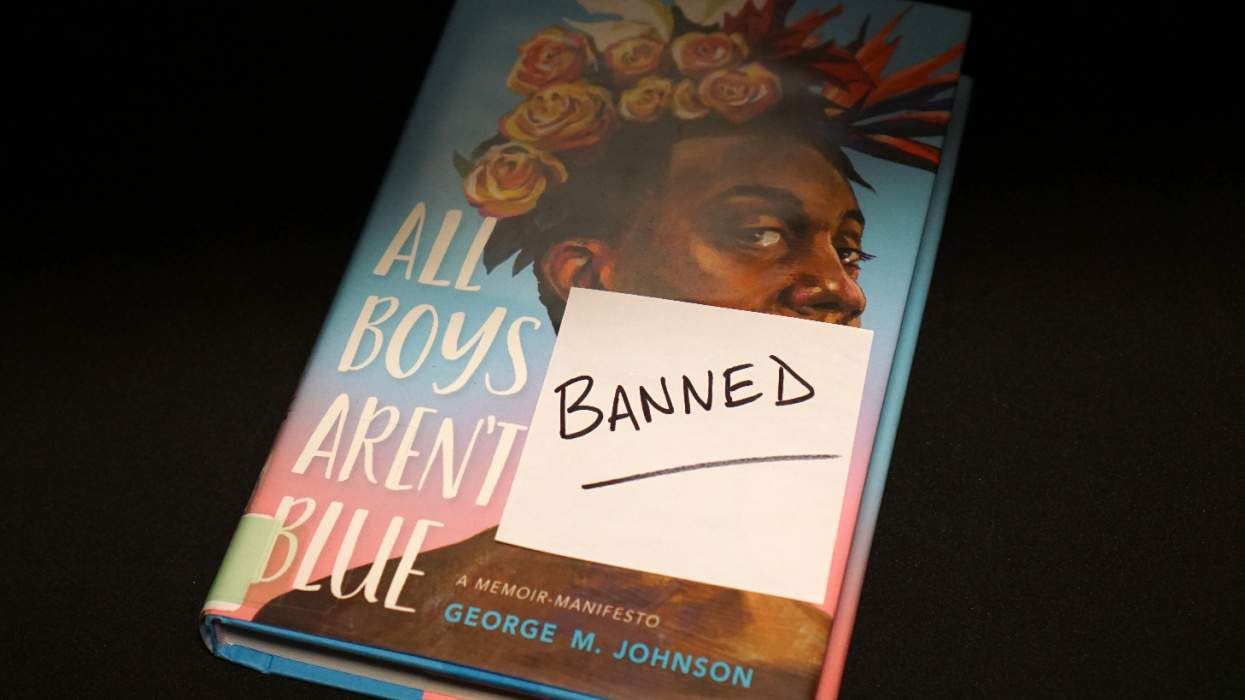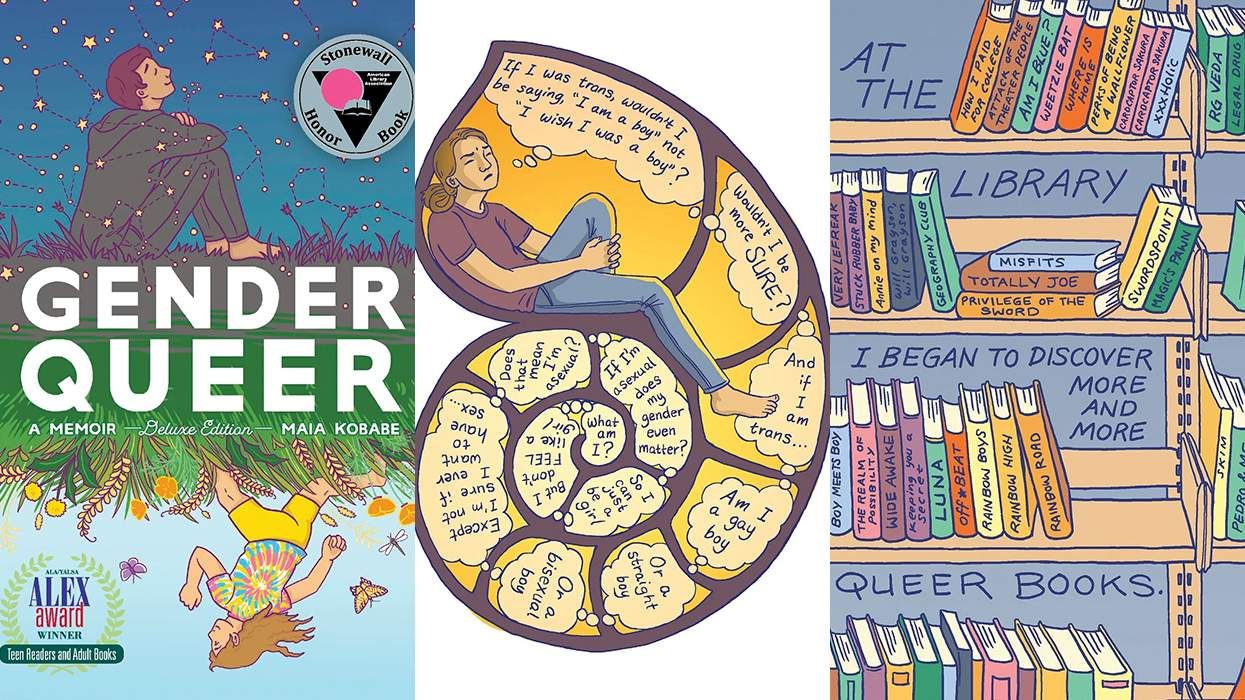Before moving to Los Angeles and starring in hit shows like Teen Wolf and Arrow,
Colton Haynes didn't care who knew that he was gay. He danced in his teens as a go-go boy at a local gay bar called Big Daddy's and even took his boyfriend to prom. He was unequivocally out.
But because of how Haynes looks, Hollywood quickly decided that he was a leading man upon arriving in Los Angeles. He was typecast as a dumb jock, a jerk, the boyfriend of the beautiful singer in a music video -- roles he was told that meant he couldn't be gay. Forced back into the closet, he set about changing his voice and mannerisms. "I definitely had to lock all that back up. And it was really damaging to me because, still to this day, I find myself longing to be that kid who could be wholly anonymous," he says. "I learned shame through this industry."
Now that he's publicly out about his sexuality, he's experienced a dramatic shift in how Hollywood sees him, rarely going in for roles that aren't "the gay best friend or the gay dad."
A great deal has changed for queer actors in the entertainment industry since 2007 when Haynes to L.A. and went on his first audition, but as he makes clear in his new memoir, Miss Memory Lane, "We still have a long way to go." More than simply a celebrity memoir, Miss Memory Lane is a radical act of honesty from a seasoned storyteller. It plots each pivotal moment of his life and career while expertly skipping over the mundane cliches typically associated with tales of people growing up in small towns who yearn to make it big in Tinseltown.
Haynes joins the LGBTQ&A podcast this week to talk about the barriers that queer actors still face in Hollywood, how being forced back into the closet affected his mental health, his early experiences with sexual assault, and his new memoir, Miss Memory Lane.
You can listen to the full interview on Apple Podcasts or read excerpts below.
Jeffrey Masters: One of the most interesting parts of your story for me is that growing up, you didn't seem to have an internalized shame or stigma around being gay. You were out in high school, you took your boyfriend to prom, you danced as a go-go boy at a gay bar. It was only the industry that forced you back in the closet. Am I mischaracterizing that?
Colton Haynes: I think it's a mixture. I think I learned shame through this industry. I was told I had to match my mannerisms and things that I needed to do to be what people wanted in Hollywood. They wanted, I guess, my mannerisms to match my douchey haircut and my jaw.
So yeah, I definitely had to lock all that back up. And it was really damaging to me because, still to this day, I find myself longing to be that kid who could be wholly anonymous. I still miss how things were before I moved to L.A.
Because you were in the closet for the majority of your career, how much do you feel like you missed out on building community with other queer people in Hollywood?
I think that still is hard for me because I was at the time one of the only queer people, which I wasn't out, who was able to really kind of exist in Hollywood.
And then basically I was telling everyone that you can be gay -- even after I came out -- you can be gay, but your mannerisms have to be on mute. You have to still be guarded and still play that availability game. You have to basically be straight-acting and you have to be white, essentially. And that's the problem with this industry.
It goes back to how you look because if you were playing the goofy sidekick, these things wouldn't be big issues, right?
And the thing is, that's my personality. I'm an actor, but for some reason, I don't really get taken seriously for things that I'm capable of doing because a lot of times people are just more interested in my personal life. That's also fine. I do deliver that on a platter for people to pick and choose what they want for their oeuvre, I guess.
But it's hard because once I realize that my only currency would be my physical beauty ... that's the only thing I had to use to try to showcase who I am. That's not the best precursor to really showing the best of yourself because a lot of times people won't listen to what I'm saying. And it's hard because if they cast me as the sidekick, then my look is too threatening against the lead, so the only auditions I get now are to play the gay best friend or the gay dad.
You're saying that since coming out, Hollywood only sees you as able to play gay roles.
Oh, yeah. Basically, if there's a character that's gay, alcoholic, flop ... all these things sum it up. It's basically like I don't even need to open my email when I do get an audition because I know what it's going to be. I have no problem, obviously, with playing any role. I just never played a gay role up until I came out. After I came out, my character became gay in Teen Wolf. It was confusing for me because I don't want to say I'd beaten out other straight actors for these roles, but I had played straight roles my whole career.
It's interesting because you basically become a stereotype. It's almost this feeling of the audience speculated that I was gay and they don't want to be told that they're right. If I would've continued to be in the closet, I can't really say that I would be here today. And so I think that's why it was so important for me to come out. If I have to be carting my trauma stories around ... it definitely is a very disheartening thing, but at the same time, I've been doing this for almost 20 years.
In the book, you write that it was when you turned 13, that you realized that you were attractive. What happened at 13 that made you realize that?
Well, puberty hit me like a truck. Everyone always says I looked like Harry Potter when I was a kid. It was over the summer. I grew my hair out. I had that Zac Efron swoopy thing from High School Musical and then I felt like I was being seen for the first time. And also by that time, I had been involved in a lot of sexual trauma. And so I realized that, whoa, people are now inviting me to the cool table.
I was a very effeminate kid, but I also played sports to try to get love from my dad and that didn't fucking work. I just kind of had to be whatever you wanted me to be, therefore I never really, truly ... I still am trying to figure out who the fuck I am because I had to be so many different things for so many people and never actually be anything for myself. That's something that is the constant struggle for me because now I kind of tend to be a hermit and not really know which version of myself I'm going to get today. It's all a process.
A lot of your early sexual experiences were with older men. When you lost your virginity, you were 14 and he was 42. You were not of the legal age to give consent. When did you stop viewing that as a relationship and more for what it was, you being taken advantage of by an adult?
Not until I was an adult, essentially. It's a complicated thing. And it had been years, I had basically been trying to get this man to sleep with me. It happened when I was 14. By 12 or 13, I'm fantasizing about this man. But really, now I know that I was just wanting the love that my father never gave me and so then I was constantly seeking that. I now know it's wrong and I now know that I'm not the aggressor.
And many of these men you were sleeping with, it was because you needed a place to stay.
Yeah. I knew that providing that for them would get something for me. I was a vortex, I guess, you could say.
My mom's aura was addicting. Not just for other men in a sexual way, but every time she was around, she just really was this light. I didn't get to see that light a lot because she was struggling through something. And it wasn't until I went through the same thing that I realized that, so the apple never fell far from the tree because I did everything and acted exactly like my mom.
All this sexual desire and sex at such a young age, how did that shape your view and experience of sex now as an adult?
Sex was never an act of love for me. It was a tool that I used to survive and to get what I want. I don't have a very healthy relationship with it now. It doesn't make me excited or happy when someone is really just interested in the way that I look. Yeah, it's very off-putting for me.
One of your first jobs as a teenager was dancing as a go-go boy at a gay bar. What did you learn about gay culture and being gay doing that?
It was the biggest rush that I could have ever experienced. Those memories are some of my favorite memories because I got to see other people who basically had that same light as me. It was that magical thing for me. And it wasn't right that I blew a guy and stole his fake ID and then went to go work for tips under the table as a go-go boy. But I'd never experienced that before and in my head, as we all do, we think we're an old soul.
I started seeking attention I didn't feel that I had gotten enough of from my parents. And then I started using my body to get that. And so now looking back to that, I think that is a lot of the reason why I grew to hate my body because it doesn't feel like mine. It feels like everyone else's, so a lot of times that's why I treat myself so badly.
You write about how all your life you wanted attention. Reading the book, I couldn't tell if you liked acting because it gave you attention and a way out of your small town, or if you also enjoyed acting itself.
Hmm. I enjoyed it. When I started, I loved doing theater. I loved it when it was about what I was capable of doing, instead of every time I got something, it was attached to the way that I looked. Getting into this industry without having any idea what it can do to your confidence and your self-esteem and your mental health ... when it comes to me liking acting or not, you can give me five pages and I can memorize it in five minutes. And if you need me to cry on cue, I can cry on cue. But no one wants to let me showcase what I can do. I'm able to put a lot of my life into a lot of my roles and I tend to try to add tears in a lot of my Arrow roles to make it more complicated.
But at this point, I'm just going to have to continue creating and doing things for myself until other opportunities can come.
The drinking and addiction you wrote about, were you also going to set and acting while drunk?
It had never crossed over to that literally until when I went back to do those last things on Arrow. I'd never done it prior to that. It really was just around the time when my mom died. Everyone just thought that I was gaining all this weight because I was depressed, but I was imploding and I was hyper-aware of what people were saying with my appearance changing and that fueled me till I ended up in the hospital.
I posted this video of me in the hospital. I'm 5'9", 5'10" and I gained almost 70 pounds, 65 pounds. And it's very apparent. You can clearly tell that there's something going on because I was in a spiral. And so when I felt that I had lost basically what people wanted, in a way, I felt free.
But I felt like, fuck. If my only currency is in the way that I look and now no one wants me anymore ... I just felt completely useless.
With how much people only saw you for your looks, was there a way in which gaining weight and removing that changed things in a positive way?
It didn't. It's harmful what people say online. I think a lot of people just think that people who are on TV or in this industry just don't know what's going on. And I'm like, you putting a fucking couple asterisks in my name is not going to stop me from searching on Twitter on the search bar to see all the bullshit that some of y'all are saying about me.
If someone was starting out today and had leading man looks like you, would you recommend they keep their sexuality under wraps?
Oh, gosh. It's all a personal journey. We still to this day ... we can't name one leading male romantic lead actor. There's not a gay Brad Pitt. Maybe there's one or two? Your public perception does play in, especially if you are queer, to your place in this industry.
I think the community is making and is pushing so many things forward. And people are finally starting to realize that being queer and our community is so strong and the things that all of us have had to go through to endure and be a part of this, it's really inspiring. We still have a long fucking way to go. There's not a lot of room for us in this industry, but I think we're making room.
Click here to listen to the full interview with Colton Haynes.
Miss Memory Lane is out now.
LGBTQ&A is The Advocate's weekly interview podcast hosted by Jeffrey Masters. Past guests include Pete Buttigieg, Laverne Cox, Brandi Carlile, Billie Jean King, and Alok Vaid-Menon.
New episodes come out every Tuesday.
















